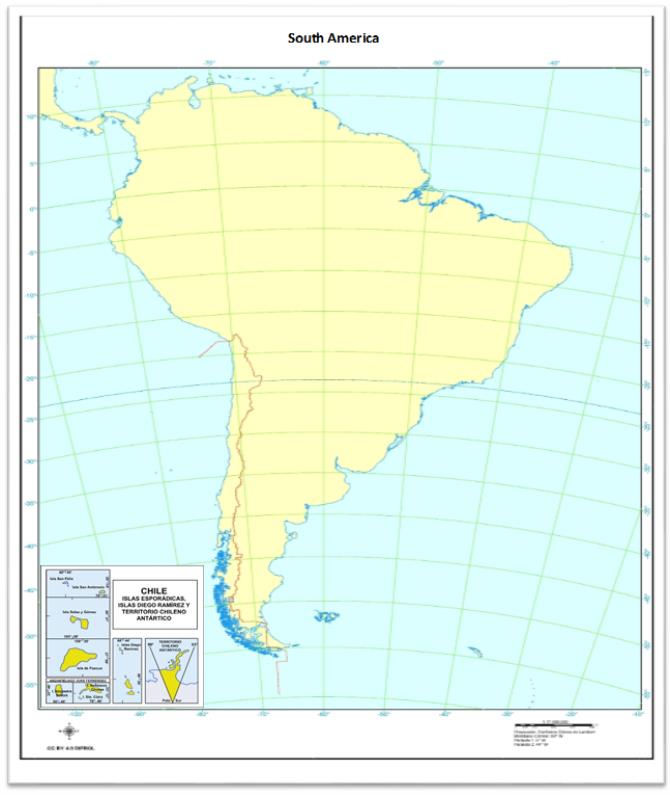Foreign Trade
Chile has generally followed an outward-oriented economic development strategy. Chile’s main trade policy objective is to improve and ensure access to all markets for its goods and services, as well as to encourage domestic and foreign investment. With a view to liberalizing the economy, all available channels have been used to give Chile’s trade policy an outward orientation, including unilaterally opening its markets and entering into bilateral and multilateral trade agreements.
Chile’s open trade policy covers goods, services and investments. Pursuant to its open trade policy, Chile’s applied MFN tariff was unilaterally phased down from 35.0% to 6.0% between 1985 and 2003. Since 2003, this uniform overall tariff has been maintained unchanged as a 6.0% ad valorem duty on imports for most products, which makes up over 98.0% of tariff lines. This low and uniform tariff is a distinctive feature of Chile’s trade policy.
Chile has effectively lowered its applied tariff rate to 0.8% (the 2018 average), as compared to 3.0% in 2003 through the implementation of free trade and other agreements.
Chile currently is a party to 26 bilateral agreements with 64 trading partners that accounted for 86.3% of its overall trade in 2018 (imports and exports, both MFN and preferential). The trading partners with which Chile has signed agreements are the P-4 (New Zealand, Singapore and Brunei), the European Union, Canada, the Republic of Korea, China, Central America (Costa Rica, El Salvador, Guatemala, Honduras, Nicaragua), the United States, Hong Kong, Mexico, EFTA (Switzerland, Norway, Iceland and Liechtenstein), Panama, Colombia, Peru, Ecuador, Mercosur (Argentina, Venezuela, Brazil, Paraguay and Uruguay), Bolivia, Malaysia, Japan, India, Australia, Turkey, Cuba, Vietnam and Thailand. Chile is a founding member of the Pacific Alliance (with Colombia, Mexico and Peru).
Chile is a founding member of the World Trade Organization.
Since 1994, Chile has been a member of, and an active participant in, the Asia-Pacific Economic Cooperation (APEC) forum. In recent years, the Asia-Pacific region has become a priority for Chilean trade policy. Initiatives have been launched within the APEC framework to facilitate trade, including mutual recognition agreements and free trade agreements. Chile will host the APEC forum in 2019.
On January 5, 2016, the Senate approved an additional protocol to the Pacific Alliance, which is expected to decrease to 0% tariffs applicable to 92% of the goods traded among the members of the Alliance. The protocol was implemented by Chile on May 1, 2016.
On June 5, 2017, Canada and Chile signed amendments to their free trade agreement entered into in July 1997, including amendments relating to sanitary and phytosanitary measures, technical barriers to trade, and trade and gender, among other issues. Further, the amendment introduced technical modifications to the existing chapter on government procurement and added new elements to the chapter on investment. This agreement entered into force on February 5, 2019.
In October 2017, the Pacific Alliance and Canada, Australia, New Zealand and Singapore began negotiations toward deepening their trade partnerships.
On November 2, 2017, Argentina and Chile entered into a new bilateral trade agreement to expand and deepen their economic and trade relations, particularly with regards to trade of services.
On November 11, 2017, Chile and China signed a new free trade agreement with the objective of broadening and deepening their existing agreement. The agreement includes new disciplines, such as e-commerce, services facilitation and competition policy.
On November 16, 2017, Chile and the European Union began negotiations to bring the existing Association Agreement executed in 2002 in line with current standards, reinforcing cooperation in the fields of trade, security and politics, among others. The last round of negotiations was held in Santiago, Chile between April 1 to April 9, 2018.
D-61
